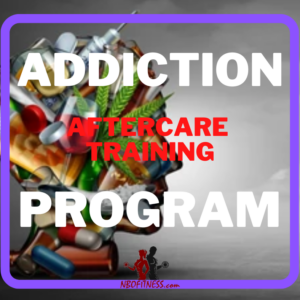
Traditionally, medical school curricula have been designed around acute care and the management of diseases—skills that are essential when treating conditions that require urgent or immediate intervention. But when it comes to chronic illnesses like obesity or cardiovascular disease, the education on long-term health strategies such as exercise and nutrition has been relatively superficial. While these topics are mentioned in medical school, they are often not covered in the same depth as pharmacological treatments. This leaves new doctors underprepared to incorporate comprehensive lifestyle interventions into their practice.
Reviewed by Evans Mwaniki, PT
There’s a trend that stretches back for decades, shaping how medicine is taught and practiced today. Much of the research funding at universities comes from external sources, and over time, pharmaceutical companies have become major players in supporting this research. While their involvement has undoubtedly accelerated advancements in medicine, it has also led to a focus on symptomatic treatment—that is, managing the effects of diseases rather than addressing their root causes.
Big Pharma’s role in funding medical research is not inherently malicious; after all, the development of life-saving drugs has revolutionized healthcare. However, the influence of pharmaceutical companies has tilted the balance toward treatments that require lifelong medication, rather than lifestyle-based interventions like nutrition, exercise, and mental well-being, that could prevent or reverse certain diseases. This creates an inherent bias, where conditions like obesity, diabetes, or heart disease are often treated primarily with drugs, and not with the comprehensive lifestyle changes that can yield lasting benefits.
Research Programs
Why has this happened? The answer is complex. Pharmaceutical companies have a vested interest in supporting treatments that align with their products. Naturally, research that leads to the development of new medications or supports the continued use of existing ones is attractive to fund. As a result, medical schools, which often rely on external funding to support research programs, have gravitated toward symptom-focused treatments. The economic incentives tied to drug-based treatments can unintentionally discourage educational programs that emphasize preventive medicine, such as deep instruction in nutrition, exercise, and mental well-being.
Traditionally, medical school curricula have been designed around acute care and the management of diseases—skills that are essential when treating conditions that require urgent or immediate intervention. But when it comes to chronic illnesses like obesity or cardiovascular disease, the education on long-term health strategies such as exercise and nutrition has been relatively superficial. While these topics are mentioned in medical school, they are often not covered in the same depth as pharmacological treatments. This leaves new doctors underprepared to incorporate comprehensive lifestyle interventions into their practice.
The effect of this imbalanced training is that doctors emerge from medical school ready to prescribe medications but may lack the tools and knowledge to offer preventive care centered on nutrition, exercise, and mental well-being. Over time, patients also come to expect pills as the main solution to their ailments, further reinforcing a system that values symptomatic treatment over root-cause solutions. The cycle continues, with patients receiving treatment plans that focus on managing symptoms rather than making lifestyle changes that could potentially resolve their health issues altogether.
Healthcare Ecosystem
It’s essential to note that this trend isn’t driven by individual doctors or educators but by the broader healthcare ecosystem that has evolved over time. Doctors, like anyone else, work within the systems they’re trained in, and many wish they had more time or resources to guide patients on preventive care strategies. Some medical schools are now recognizing this gap and have begun integrating more nutrition and exercise physiology into their curriculums, but these changes have been slow and inconsistent.
We join hands with these selected few at Nairobi Fitness Consulting, hence we’ve taken an approach centering our services on exercise therapy, precision nutrition, and psychological rehabilitation after conducting thorough body composition analysis. We know that you don’t have to rely solely on medications to live a healthy life, and we aim to fill the gap that many traditional healthcare systems have left unaddressed. Our programs focus on understanding the unique needs of each individual, allowing us to offer tailored interventions that look beyond the scale or lab results, prioritizing overall wellness and preventive care.
Why Lifestyle Interventions Matter
Chronic diseases like obesity, diabetes, and heart disease often develop over years, fueled by poor diet, lack of physical activity, and unmanaged stress. When these factors are left unaddressed, they create a perfect storm for metabolic issues, including insulin resistance, leptin resistance, and adipose tissue dysfunction. While medications can help control blood sugar or blood pressure, they rarely address the root cause—the lifestyle choices that contributed to these issues in the first place.
Exercise therapy, for example, plays a crucial role in reversing metabolic syndrome, improving insulin sensitivity, and even reducing cancer risk. By increasing muscle mass and reducing visceral fat, structured exercise regimens help the body regulate glucose levels more effectively and combat the inflammation that often accompanies chronic illness.
Similarly, precision nutrition ensures that individuals receive the nutrients they need to fuel their bodies in a way that promotes metabolic health. For someone dealing with insulin resistance, understanding which foods spike blood sugar and which promote fat burning is essential. This kind of targeted dietary intervention can help prevent the onset of type 2 diabetes or even reverse it in its early stages.
However, without proper training in areas of exercise therapy, precision nutrition, and psychological rehabilitation, many doctors may not feel equipped to offer these interventions as first-line treatments. Instead, they might recommend medications that control symptoms but don’t address the underlying imbalances that caused the disease in the first place.
Moving Forward: A Holistic Approach to Healthcare
The influence of Big Pharma on medical education has undoubtedly shaped the way doctors are trained to approach chronic illness. While medications are invaluable for managing acute symptoms, they don’t offer the complete solution for long-term health. Nutrition, exercise, and lifestyle interventions are essential components of true wellness, and it’s time they take their rightful place in healthcare.
At Nairobi Fitness Consulting, we are leading the charge in providing comprehensive, science-based solutions that address the root causes of illness, not just the symptoms. We encourage you to explore our offerings and start your journey toward true health today. By choosing Nairobi Fitness Consulting, you are investing in more than just short-term fixes; you are choosing a lifetime of health. Whether you’re a busy executive, a frequent traveler, or someone simply looking to take control of your health, our services are designed to fit seamlessly into your life while delivering lasting results.










